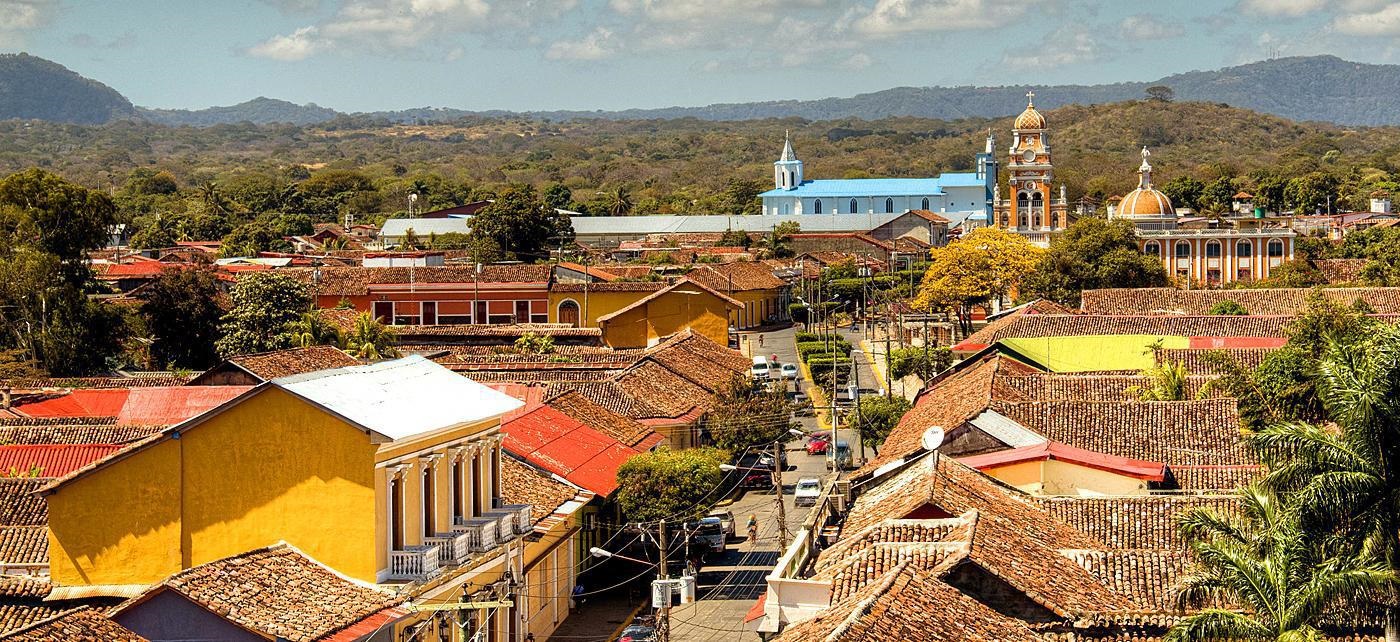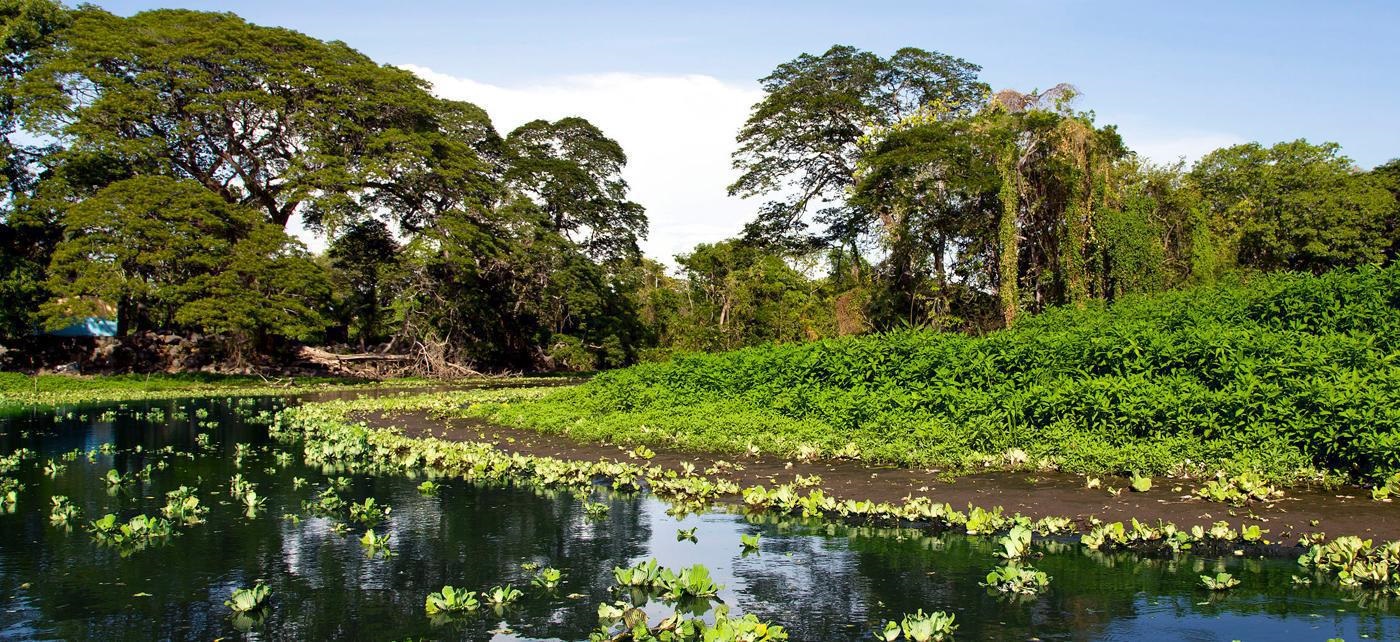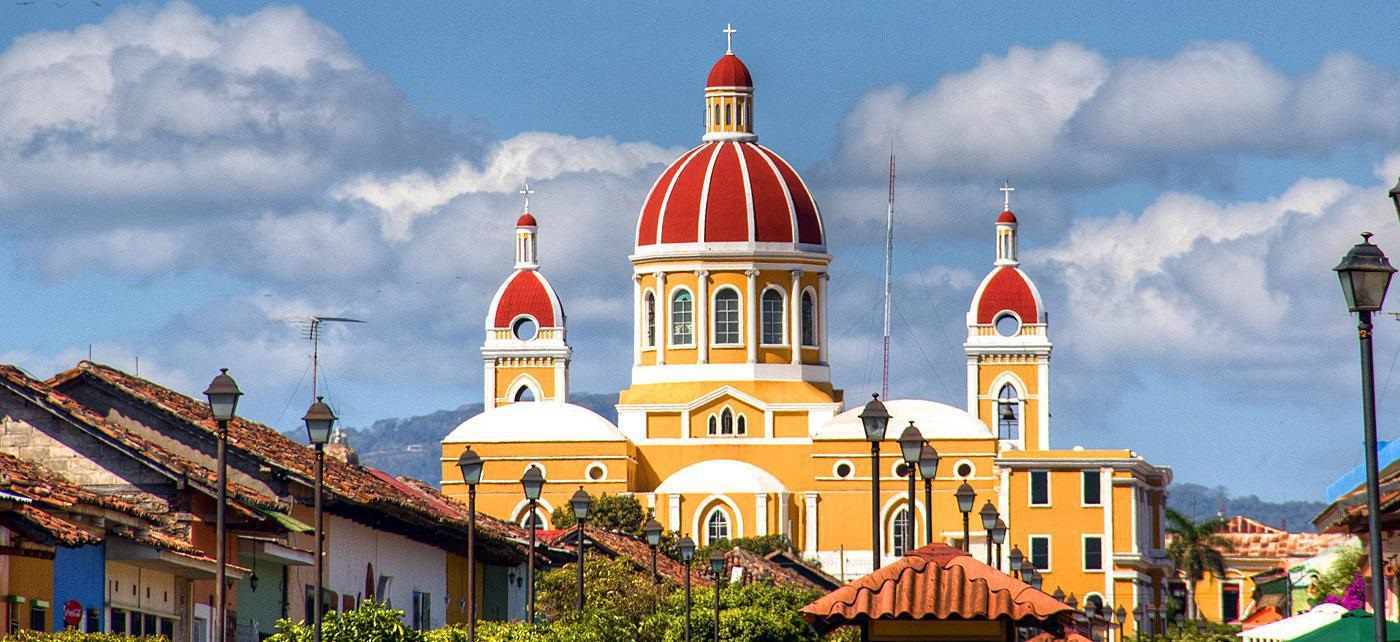Nicaragua, officially the Republic of Nicaragua, is the largest country in Central America. Nicaragua is bordered by Honduras to the north and Costa Rica to the south. Nicaragua is located at the center of the Central American isthmus that forms a land bridge between North and South America. The country is situated between 11 and 14 degrees north of the Equator in the Northern Hemisphere, which places it entirely within the tropics. The Pacific Ocean lies to the west, and the Caribbean Sea to the east; Nicaragua's Caribbean coast is part of the Western Caribbean Zone.
The country's physical geography divides it into three major zones: Pacific lowlands, wet, cooler central highlands, and the Caribbean Lowlands. On the Pacific side of the country are the two largest fresh water lakes in Central America�Lake Managua and Lake Nicaragua. Surrounding these lakes and extending to their northwest along the rift valley of the Gulf of Fonseca are fertile lowland plains, whose soil is highly enriched with ash from nearby volcanoes. Nicaragua's abundance of biologically significant and unique ecosystems contributes to Mesoamerica's designation as a biodiversity hotspot. The Central American Volcanic Arc runs through the spine of the country, earning Nicaragua its notably famous nickname: The Land of Lakes and Volcanoes.
In pre-Columbian times, in what is now known as Nicaragua, the indigenous people were part of the Intermediate Area located between the Mesoamerican and Andean cultural regions and within the influence of the Isthmo-Colombian area. It was the point where the Mesoamerican and South American native cultures met. This is confirmed by the ancient footprints of Acahualinca, along with other archaeological evidence, mainly in the form of ceramics and statues made of volcanic stone, such as the ones found on the island of Zapatera in Lake Nicaragua and petroglyphs found on Ometepe Island. The Pipil migrated to Nicaragua from central Mexico after 500 B.C
Politics of Nicaragua takes place in a framework of a presidential representative democratic republic, whereby the President of Nicaragua is both head of state and head of government, and of a multi-party system. Executive power is exercised by the government. Legislative power is vested in both the government and the National Assembly. The Judiciary is independent of the executive and the legislature. Between 2007 and2009, Nicaragua's major political parties discussed the possibility of going from a presidential system to a parliamentary system. Their reason: there would be a clear differentiation between the head of government (Prime Minister) and the head of state (President). Nevertheless, it was later known the true reason behind this proposal was to find a legal way for current President Ortega to stay in power after January 2012 (this is when his second and last government period ends).
The Civil War forced many Nicaraguans to start lives outside of their country. Although many Nicaraguans returned after the end of the war, many people emigrated during the 1990s and the first decade of the 21st century due to the lack of employment opportunities and poverty. The majority of the Nicaraguan Diaspora migrated to Costa Rica and the United States, and today one in six Nicaraguans live in these two countries. The Diaspora has also seen Nicaraguans settling around in smaller communities in other parts of the world, particularly Western Europe. Small communities of Nicaraguans are found in France, Germany, Italy, Spain, Norway, Sweden and the United Kingdom. Communities also exist in Australia and New Zealand. Canada, Brazil and Argentina in the Americas also host small groups of these communities. In Asia, Japan also hosts a small Nicaraguan community.


